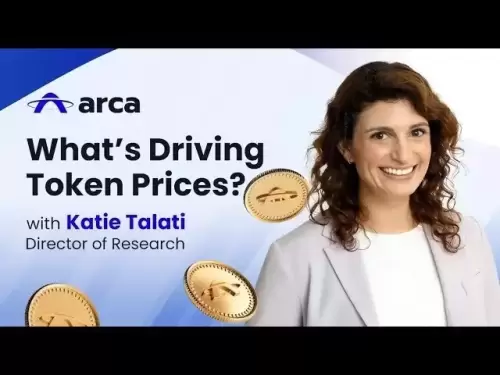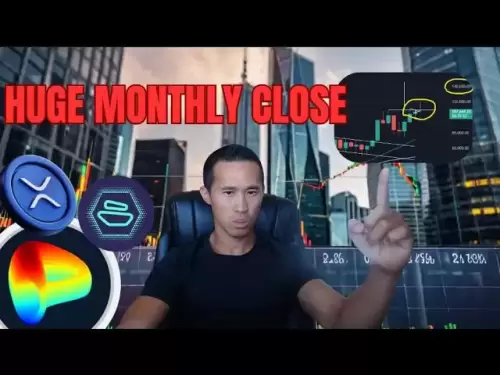-
 Bitcoin
Bitcoin $107,443.3008
-1.17% -
 Ethereum
Ethereum $2,494.2503
-0.63% -
 Tether USDt
Tether USDt $1.0003
0.00% -
 XRP
XRP $2.2496
2.23% -
 BNB
BNB $658.7569
0.63% -
 Solana
Solana $154.9826
1.94% -
 USDC
USDC $1.0000
0.01% -
 TRON
TRON $0.2799
1.07% -
 Dogecoin
Dogecoin $0.1659
-1.78% -
 Cardano
Cardano $0.5745
0.25% -
 Hyperliquid
Hyperliquid $39.7005
0.13% -
 Bitcoin Cash
Bitcoin Cash $519.5989
3.78% -
 Sui
Sui $2.7874
-2.40% -
 Chainlink
Chainlink $13.3762
-1.69% -
 UNUS SED LEO
UNUS SED LEO $9.0784
-0.64% -
 Avalanche
Avalanche $17.9846
-2.81% -
 Stellar
Stellar $0.2390
-0.06% -
 Toncoin
Toncoin $2.9028
0.25% -
 Shiba Inu
Shiba Inu $0.0...01147
-2.17% -
 Litecoin
Litecoin $86.6956
-1.27% -
 Hedera
Hedera $0.1508
-0.50% -
 Monero
Monero $322.6222
3.26% -
 Polkadot
Polkadot $3.4124
-2.99% -
 Dai
Dai $0.9999
0.00% -
 Bitget Token
Bitget Token $4.5434
-1.97% -
 Ethena USDe
Ethena USDe $1.0002
0.00% -
 Uniswap
Uniswap $7.1562
-2.61% -
 Aave
Aave $275.8830
-1.02% -
 Pepe
Pepe $0.0...09790
-4.04% -
 Pi
Pi $0.5018
-5.09%
How to calculate the contract transaction fee? Can VIP level reduce the fee rate?
Contract transaction fees depend on network congestion, gas limit, price, and smart contract complexity; VIP levels can reduce these fees on some exchanges.
May 05, 2025 at 05:15 am
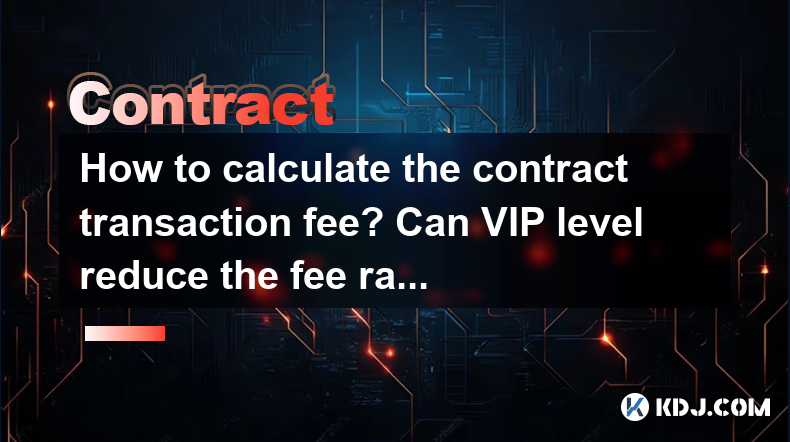
Introduction to Contract Transaction Fees
When participating in cryptocurrency trading, understanding how contract transaction fees are calculated is essential for traders. Contract transaction fees are charges imposed by exchanges or blockchain networks for executing smart contract transactions. These fees can significantly impact the overall cost of trading, especially for frequent traders. In this article, we will delve into the specifics of how these fees are calculated and explore whether VIP levels can reduce the fee rate.
Understanding Contract Transaction Fees
Contract transaction fees are typically calculated based on several factors, including the complexity of the smart contract, the network's congestion, and the gas price set by the user. For instance, on the Ethereum network, these fees are often referred to as "gas fees." The gas fee is determined by multiplying the gas limit (the maximum amount of gas the user is willing to use for the transaction) by the gas price (the price per unit of gas).
Factors Influencing Contract Transaction Fees
Several elements can influence the amount of the contract transaction fee:
- Network Congestion: During periods of high demand, the network may become congested, leading to higher fees as users compete to have their transactions processed more quickly.
- Gas Limit: This is the maximum amount of gas a user is willing to spend on a transaction. A higher gas limit can result in a higher fee but may ensure the transaction is processed more quickly.
- Gas Price: This is the price per unit of gas. Users can set a higher gas price to incentivize miners to prioritize their transaction, which can lead to higher fees.
- Smart Contract Complexity: More complex smart contracts require more computational resources, which can increase the gas limit and, consequently, the fee.
Calculating Contract Transaction Fees
To calculate the contract transaction fee, you need to understand the formula used by the specific blockchain network. For Ethereum, the formula is straightforward:
- Gas Fee = Gas Limit x Gas Price
Here's a step-by-step guide on how to calculate the fee:
- Determine the gas limit required for your transaction. This can be estimated using tools provided by the blockchain network or through trial and error.
- Set the gas price you are willing to pay. This can be adjusted based on current network conditions and your urgency for the transaction to be processed.
- Multiply the gas limit by the gas price to get the total gas fee.
Impact of VIP Levels on Fee Rates
Many cryptocurrency exchanges offer VIP levels to their users, which can provide various benefits, including reduced transaction fees. The impact of VIP levels on contract transaction fees can vary depending on the exchange's policies.
- VIP Levels and Fee Reductions: Some exchanges offer tiered fee structures where higher VIP levels result in lower fee rates. For example, a user at VIP level 1 might pay a standard fee rate, while a user at VIP level 5 might enjoy a significant discount.
- Qualifying for VIP Levels: To achieve a higher VIP level, users typically need to meet certain criteria, such as maintaining a minimum trading volume over a specified period or holding a certain amount of the exchange's native token.
- Examples of VIP Fee Reductions: For instance, on Binance, users can achieve different VIP levels based on their 30-day trading volume or BNB holdings. Higher VIP levels can reduce both trading fees and withdrawal fees, which indirectly affects contract transaction fees.
How to Check and Adjust Your VIP Level
To take advantage of potential fee reductions, you need to know how to check and adjust your VIP level on an exchange. Here's how you can do it on a typical exchange:
- Log into your account on the exchange's website or app.
- Navigate to the 'User Center' or 'Account' section. This is usually found in the top right corner of the interface.
- Find the 'VIP Level' or 'Membership' tab. This will show your current VIP level and the criteria needed to reach the next level.
- Review the criteria for advancing to a higher VIP level. This might include increasing your trading volume or holding more of the exchange's native token.
- Adjust your trading strategy to meet the criteria. This could involve increasing your trading frequency or holding more of the required assets.
Practical Example of Calculating Contract Transaction Fees
Let's consider a practical example to illustrate how to calculate contract transaction fees and how VIP levels might affect them. Suppose you are executing a smart contract transaction on the Ethereum network.
- Gas Limit: You estimate that your transaction requires a gas limit of 200,000.
- Gas Price: The current network conditions suggest a gas price of 20 Gwei (1 Gwei = 0.000000001 ETH).
- Calculation: The total gas fee would be 200,000 x 20 Gwei = 4,000,000 Gwei, which equals 0.004 ETH.
Now, if you are a VIP user on an exchange that offers a 20% discount on transaction fees, your effective fee would be reduced to 0.0032 ETH.
Frequently Asked Questions
Q1: Can the contract transaction fee be refunded if the transaction fails?
A1: In most cases, if a transaction fails, the unused portion of the gas fee is refunded to the sender's wallet. However, the portion of the gas used to process the transaction up to the point of failure is not refundable.
Q2: Do all blockchain networks use the same method to calculate contract transaction fees?
A2: No, different blockchain networks have different methods for calculating transaction fees. For example, Ethereum uses gas fees, while Bitcoin uses a fee structure based on transaction size and network congestion.
Q3: How often do VIP levels and their associated fee discounts change on exchanges?
A3: The frequency of changes to VIP levels and fee discounts varies by exchange. Some exchanges review and adjust their VIP programs quarterly, while others may do so annually or based on market conditions.
Q4: Can I negotiate my VIP level with the exchange?
A4: Typically, VIP levels are not negotiable as they are based on predefined criteria set by the exchange. However, some exchanges may offer special promotions or events that can temporarily boost your VIP level or provide additional benefits.
Disclaimer:info@kdj.com
The information provided is not trading advice. kdj.com does not assume any responsibility for any investments made based on the information provided in this article. Cryptocurrencies are highly volatile and it is highly recommended that you invest with caution after thorough research!
If you believe that the content used on this website infringes your copyright, please contact us immediately (info@kdj.com) and we will delete it promptly.
- North Korea's Cyber Plot: Funding Weapons Development Through Virtual Heists
- 2025-07-01 10:30:12
- Undervalued Crypto Tokens: Compute Tokens Stealing the Show?
- 2025-07-01 10:50:12
- XRPL EVM Sidechain: Unleashing Smart Contracts and Cross-Chain DeFi on XRP
- 2025-07-01 10:30:12
- Archaeology Unearths Ancient Coin Moulds: A Glimpse into Indo-Greek Trade in Gujarat
- 2025-07-01 10:50:12
- MAGACOIN FINANCE: Altcoin Returns & the Early Adoption Advantage
- 2025-07-01 11:10:12
- Neo Pepe: Is This Presale the Crypto Opportunity You've Been Waiting For?
- 2025-07-01 11:10:12
Related knowledge
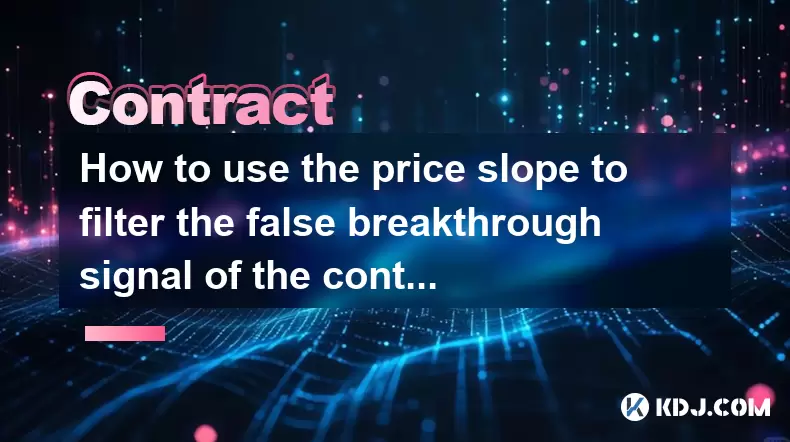
How to use the price slope to filter the false breakthrough signal of the contract?
Jun 20,2025 at 06:56pm
Understanding the Concept of Price Slope in Contract TradingIn contract trading, especially within cryptocurrency derivatives markets, price slope refers to the rate at which the price changes over a specific time period. It helps traders assess the strength and sustainability of a trend. A steep slope may indicate strong momentum, while a shallow slope...
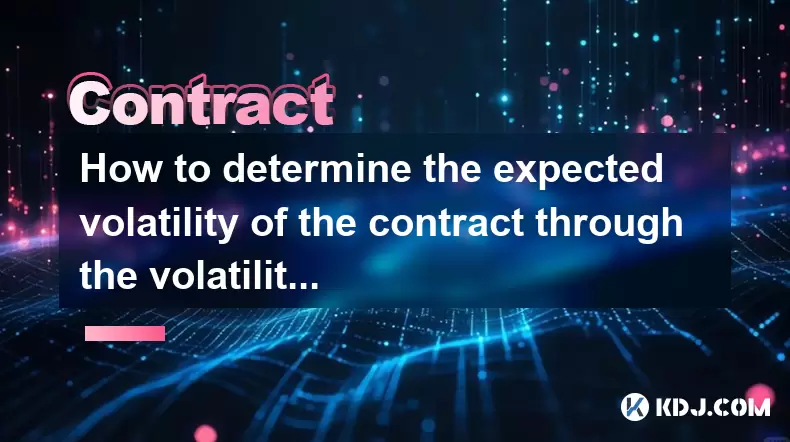
How to determine the expected volatility of the contract through the volatility cone?
Jun 19,2025 at 12:28pm
Understanding the Basics of Volatility in Cryptocurrency ContractsIn the realm of cryptocurrency trading, volatility is a key metric that traders use to assess potential risk and reward. When dealing with futures contracts, understanding how volatile an asset might become over time is crucial for position sizing, risk management, and strategy developmen...
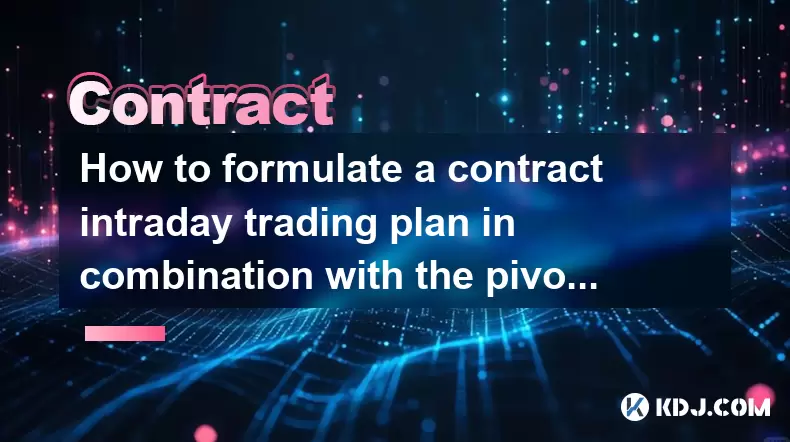
How to formulate a contract intraday trading plan in combination with the pivot point system?
Jun 21,2025 at 03:42pm
Understanding the Basics of Pivot Points in Cryptocurrency TradingPivot points are technical analysis tools used by traders to identify potential support and resistance levels. These levels are calculated using the previous day's high, low, and closing prices. In the context of cryptocurrency trading, where markets operate 24/7, pivot points help trader...
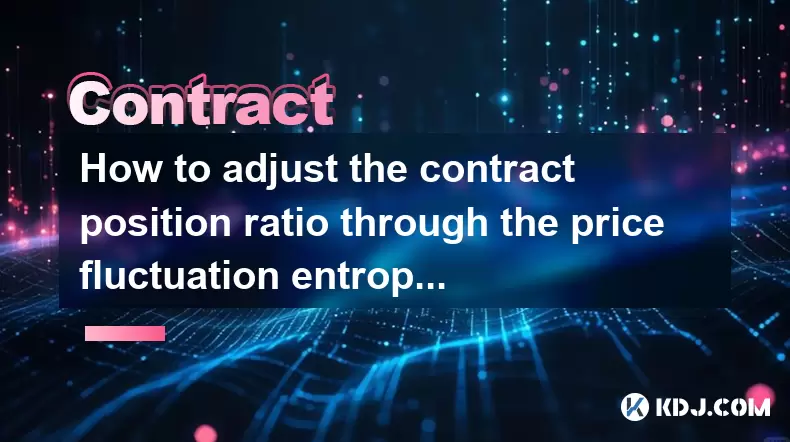
How to adjust the contract position ratio through the price fluctuation entropy?
Jun 22,2025 at 11:42am
Understanding Price Fluctuation Entropy in Cryptocurrency ContractsIn the world of cryptocurrency futures trading, price fluctuation entropy is a relatively new concept used to measure market volatility and uncertainty. It derives from information theory, where entropy refers to the degree of randomness or unpredictability in a system. In crypto contrac...
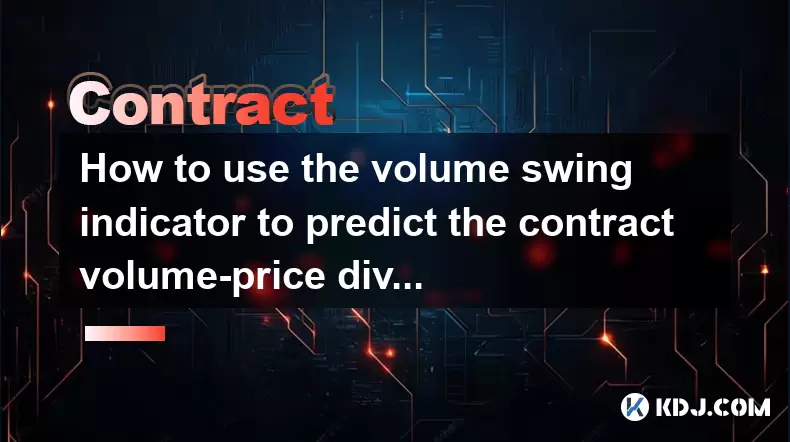
How to use the volume swing indicator to predict the contract volume-price divergence?
Jun 18,2025 at 11:42pm
Understanding the Volume Swing IndicatorThe volume swing indicator is a technical analysis tool used primarily in cryptocurrency trading to evaluate changes in volume over time. Unlike price-based indicators, this metric focuses solely on trading volume, which can provide early signals about potential market reversals or continuations. The key idea behi...
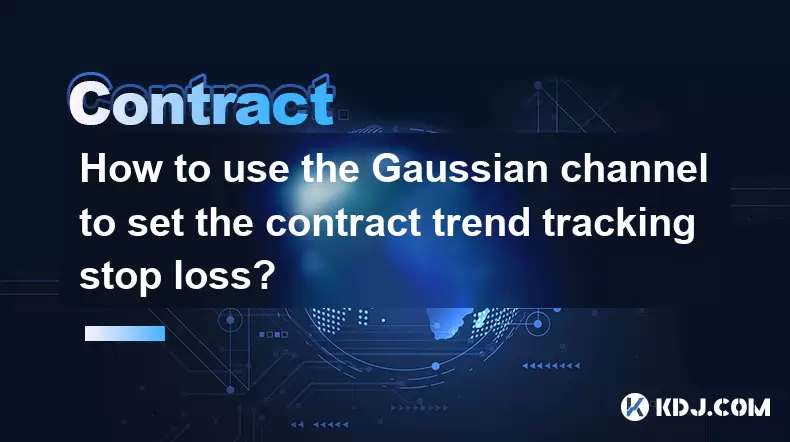
How to use the Gaussian channel to set the contract trend tracking stop loss?
Jun 18,2025 at 09:21pm
Understanding the Gaussian Channel in Cryptocurrency TradingThe Gaussian channel is a technical indicator used primarily in financial markets, including cryptocurrency trading, to identify trends and potential reversal points. It is based on statistical principles derived from the normal distribution, commonly known as the Gaussian distribution or bell ...

How to use the price slope to filter the false breakthrough signal of the contract?
Jun 20,2025 at 06:56pm
Understanding the Concept of Price Slope in Contract TradingIn contract trading, especially within cryptocurrency derivatives markets, price slope refers to the rate at which the price changes over a specific time period. It helps traders assess the strength and sustainability of a trend. A steep slope may indicate strong momentum, while a shallow slope...

How to determine the expected volatility of the contract through the volatility cone?
Jun 19,2025 at 12:28pm
Understanding the Basics of Volatility in Cryptocurrency ContractsIn the realm of cryptocurrency trading, volatility is a key metric that traders use to assess potential risk and reward. When dealing with futures contracts, understanding how volatile an asset might become over time is crucial for position sizing, risk management, and strategy developmen...

How to formulate a contract intraday trading plan in combination with the pivot point system?
Jun 21,2025 at 03:42pm
Understanding the Basics of Pivot Points in Cryptocurrency TradingPivot points are technical analysis tools used by traders to identify potential support and resistance levels. These levels are calculated using the previous day's high, low, and closing prices. In the context of cryptocurrency trading, where markets operate 24/7, pivot points help trader...

How to adjust the contract position ratio through the price fluctuation entropy?
Jun 22,2025 at 11:42am
Understanding Price Fluctuation Entropy in Cryptocurrency ContractsIn the world of cryptocurrency futures trading, price fluctuation entropy is a relatively new concept used to measure market volatility and uncertainty. It derives from information theory, where entropy refers to the degree of randomness or unpredictability in a system. In crypto contrac...

How to use the volume swing indicator to predict the contract volume-price divergence?
Jun 18,2025 at 11:42pm
Understanding the Volume Swing IndicatorThe volume swing indicator is a technical analysis tool used primarily in cryptocurrency trading to evaluate changes in volume over time. Unlike price-based indicators, this metric focuses solely on trading volume, which can provide early signals about potential market reversals or continuations. The key idea behi...

How to use the Gaussian channel to set the contract trend tracking stop loss?
Jun 18,2025 at 09:21pm
Understanding the Gaussian Channel in Cryptocurrency TradingThe Gaussian channel is a technical indicator used primarily in financial markets, including cryptocurrency trading, to identify trends and potential reversal points. It is based on statistical principles derived from the normal distribution, commonly known as the Gaussian distribution or bell ...
See all articles





















